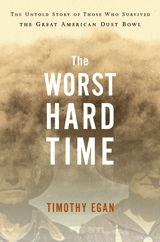ECM for dummies.
ECM Records
The record label ECM—Edition of Contemporary Music—was founded by Manfred Eicher in Munich in 1969. At the time, free jazz was rapidly emerging in Europe, as American ex-pats spread the gospel in England and on the Continent, and European players embraced a new freedom developed in-country. Eicher remains president of the label today, which in part explains the tremendous consistency in output, design, and overall aesthetic that ECM albums have maintained since its first release, pianist Mal Waldron’s Free at Last (1969). Nine hundred albums later, ECM continues to be one of the leading sources of experimental jazz with a European flavor.
Certain performers have come to be associated with ECM, including saxophonist Jan Garbarek, bassist Dave Holland, and especially pianist Keith Jarrett, who has recorded for ECM exclusively for the past 25 years. Jarrett’s diverse output—solo concerts, jazz groups, classical compositions—mirrors that of ECM as a whole. His solo Koln Concert (1975) has sold over four million copies, a remarkable feat for any jazz performance, let alone an improvised and unaccompanied concert.
ECM’s main trademark has been its production style. Eicher is a classically trained double-bassist and it may be this background that led him pursue an austere, big-room sound on just about every ECM release. Along with the spare sleeve designs, it is this crystalline tone, with almost tangible silences, that defines ECM output—for better or worse. The varied critical responses to this signature sound might explain why Eicher refuses to grant interviews. The music is consistently challenging, unafraid of lyricism and beauty—not to mention quiet—and embraces its European roots.
It’s worth noting that ECM’s very earliest records, from 1969 to the early 1970s, were recorded without Eicher at the controls. These recordings were brought in by the artists and only distributed by ECM. The lovely Dave Holland album Conference of the Birds (1973) is one notable example. Fans put off by the sterilized tang of current ECM output would do well to search out these first releases.
ESSENTIAL ECM ALBUMS
Terje Rypdal, Terje Rypdal (1971)
Dave Holland, Conference of the Birds (1973)
Jan Garbarek, Witchi-Tai-To (1973)
Art Ensemble of Chicago, Nice Guys (1978)
Art Ensemble of Chicago, Urban Bushmen (1980)
Jack DeJohnette, Album Album (1984)
Evan Parker Electro-Acoustic Ensemble, Toward the Margins (1996)
Nils Petter Molaever, Solid Ether (2000)
Thanks for reading.





0 Comments:
Post a Comment
<< Home